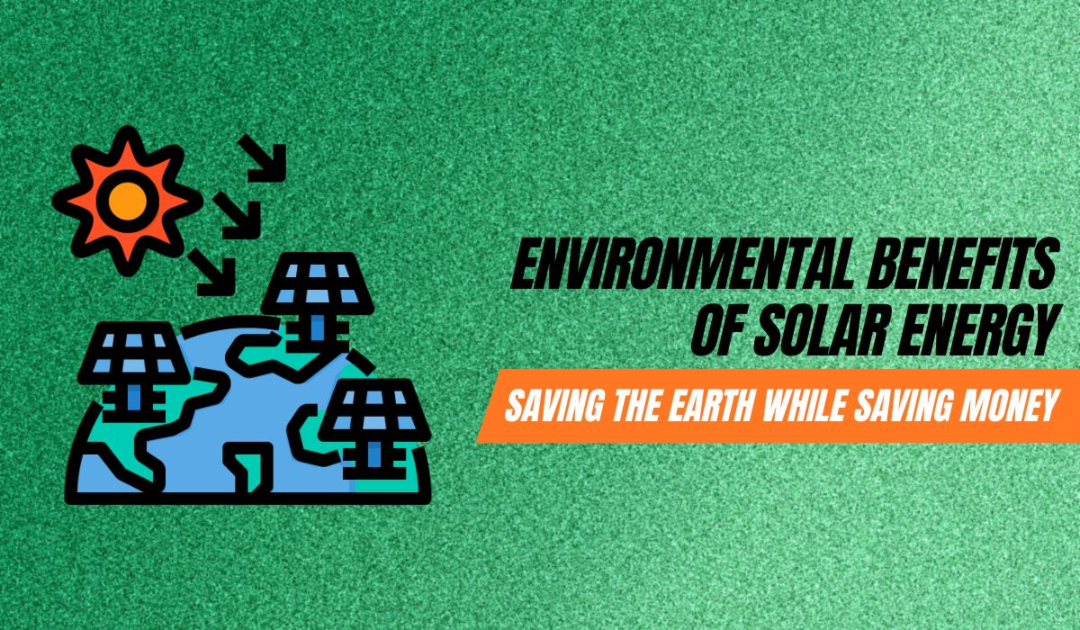Clean energy sources, such as solar, wind, hydroelectric, and geothermal, have garnered significant attention for their potential to revolutionize our energy systems. However, beyond the popular narrative of renewable energy combatting fossil fuel dependence lies a more profound exploration of its multifaceted environmental benefits. Understanding these advantages is crucial for grasping why the transition to clean energy is not merely beneficial, but imperative for a sustainable future.
First and foremost, clean energy substantially reduces greenhouse gas emissions. Conventional energy sources, predominantly fossil fuels, produce significant amounts of carbon dioxide and other greenhouse gases, which are major contributors to global warming. Transitioning to clean energy reduces these emissions considerably. For instance, solar panels and wind turbines generate electricity without emitting carbon, allowing nations to meet their energy demands while significantly mitigating climate change. In this context, the reduction of the carbon footprint becomes not only a strategy for tackling climate change but also a moral imperative for preserving ecosystems and biodiversity.
Furthermore, the utilization of clean energy contributes to improved air quality. Traditional energy sources release a plethora of pollutants, including sulfur dioxide, nitrogen oxides, and particulate matter. These toxic substances have detrimental effects on human health, leading to respiratory illnesses, cardiovascular diseases, and even premature mortality. Clean energy technologies, on the other hand, operate with minimal emissions of harmful pollutants, thereby enhancing air quality and promoting public health. The nexus between cleaner air and a healthier population is particularly salient in urban areas, where smog and pollution pose acute public health challenges.
Water conservation is another critical environmental benefit associated with clean energy. Conventional energy production, especially from coal and natural gas, requires substantial amounts of water for extraction, cooling, and processing. This leads to significant water depletion and pollution, with dire consequences for aquatic ecosystems and human consumption. In contrast, renewable energy sources like wind and solar power utilize little to no water in their operational phases. For example, solar photovoltaic systems generate electricity without any water usage, effectively alleviating the stress on freshwater resources. This capability is increasingly vital in regions battling water scarcity, underscoring the need for a paradigm shift towards renewable resources.
Moreover, clean energy promotes biodiversity conservation. The extraction of fossil fuels often results in habitat destruction, oil spills, and significant ecological disruption. Such activities threaten myriad species and can lead to ecosystem collapse. In contrast, renewable energy installations, when properly sited and managed, typically have a lower environmental footprint. Wind farms, for example, can coexist with agricultural land, and solar energy can be harnessed in previously disturbed areas without compromising biodiversity. The implementation of strategic planning in the placement of clean energy infrastructures can lead to win-win solutions for energy production and wildlife preservation.
Equally noteworthy is the role of clean energy in promoting energy independence and security. Reliance on fossil fuels often ties nations to volatile global markets, with prices fluctuating based on geopolitical tensions, extraction costs, and demand surges. Investing in local renewable energy sources empowers communities, allowing them to harness their natural resources and diversify energy supplies. This transition not only fosters resilience against energy shocks but also diminishes the ecological costs associated with long-distance fossil fuel transportation, thus further benefiting the environment.
Additionally, the economic benefits are intertwined with environmental advantages. The clean energy sector has shown significant potential for job creation. Solar and wind industries, in particular, have emerged as substantial employment providers, often in areas languishing in economic stagnation. By investing in renewable energy technologies, communities can revitalise their local economies while simultaneously fostering sustainable practices. This dual impact illustrates the notion that economic growth need not come at the expense of environmental health; rather, they can occur in tandem when clean energy solutions are prioritized.
Another fascinating aspect of clean energy is its potential to drive technological innovation. The race to harness renewable energy sources has spurred advancements in energy storage technologies, grid management systems, and energy efficiency measures. These technologies not only improve the viability and reliability of clean energy but also yield environmental advantages by reducing waste and optimizing resource use. The interplay of scientific inquiry and market demand in this arena fuels a continuous cycle of innovation, thereby enhancing the overall efficacy of our energy systems.
Furthermore, the integration of clean energy into our daily lives fosters a cultural shift towards sustainability. As individuals increasingly adopt solar panels, electric vehicles, and energy-efficient appliances, a sense of environmental stewardship permeates society. This shift cultivates a collective consciousness about ecological responsibility, where the nexus between individual actions and broader environmental outcomes becomes palpable. Such cultural transformation is essential for addressing the pressing challenges of climate change and resource depletion.
In conclusion, the multifaceted environmental benefits of clean energy extend far beyond its immediate ability to reduce emissions. From improving air quality and conserving water to promoting biodiversity and economic resilience, renewable energy sources play a pivotal role in shaping a sustainable future. The transition towards clean energy not only addresses the pressing challenges of our time but also offers profound opportunities for innovation, cultural transformation, and ecological preservation. As society stands at the crossroads of energy transition, the imperative to embrace these benefits has never been clearer.










